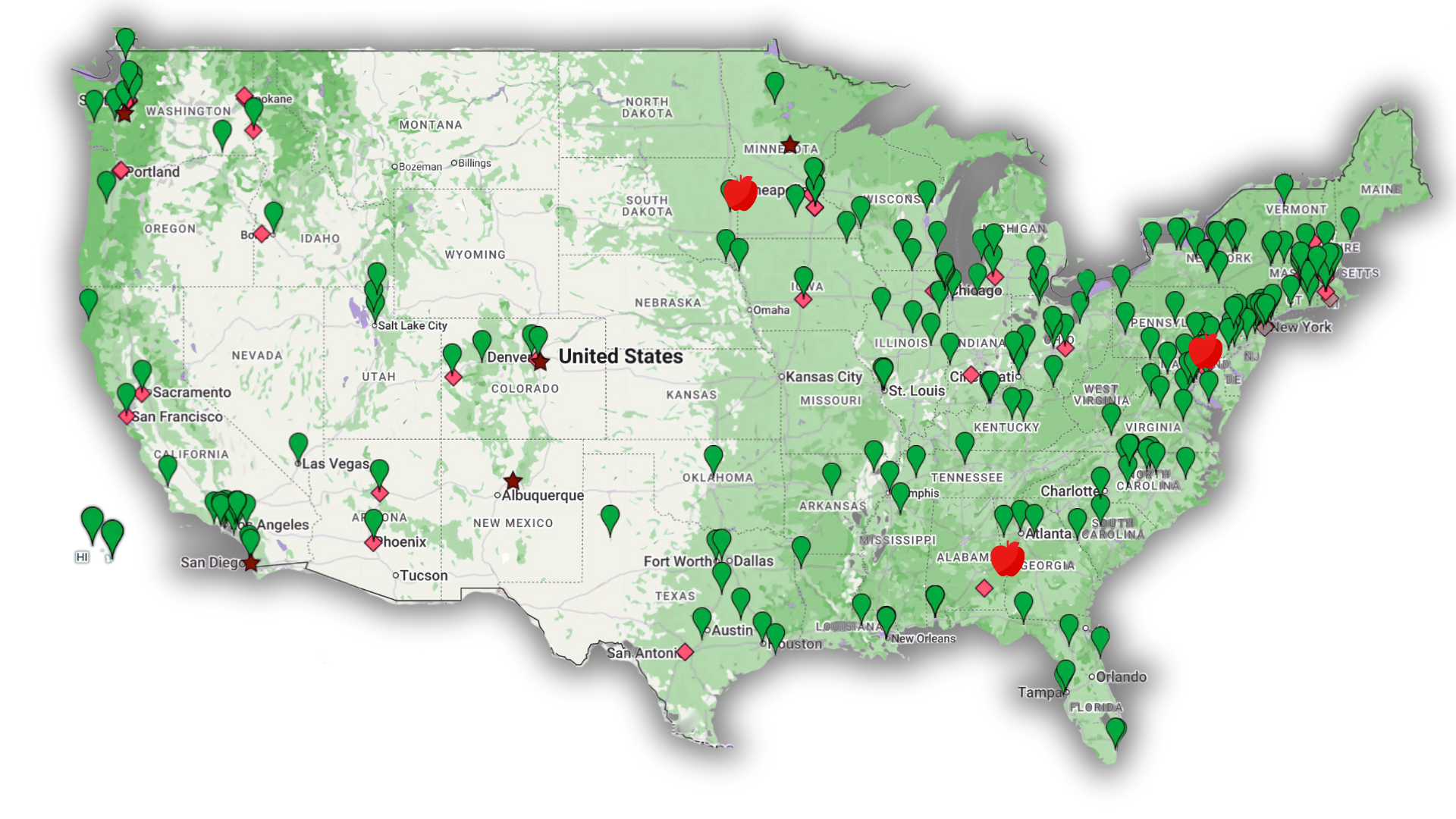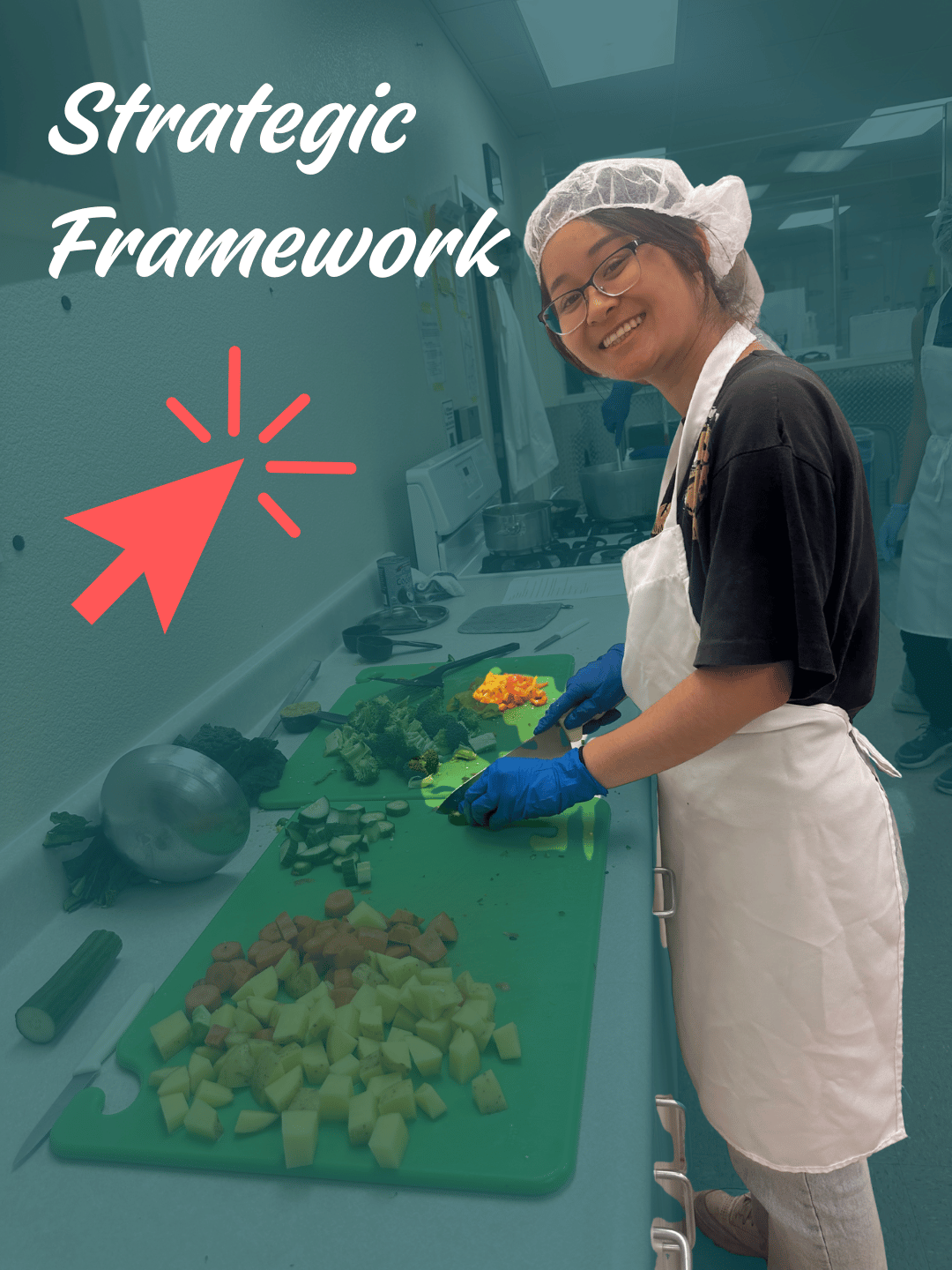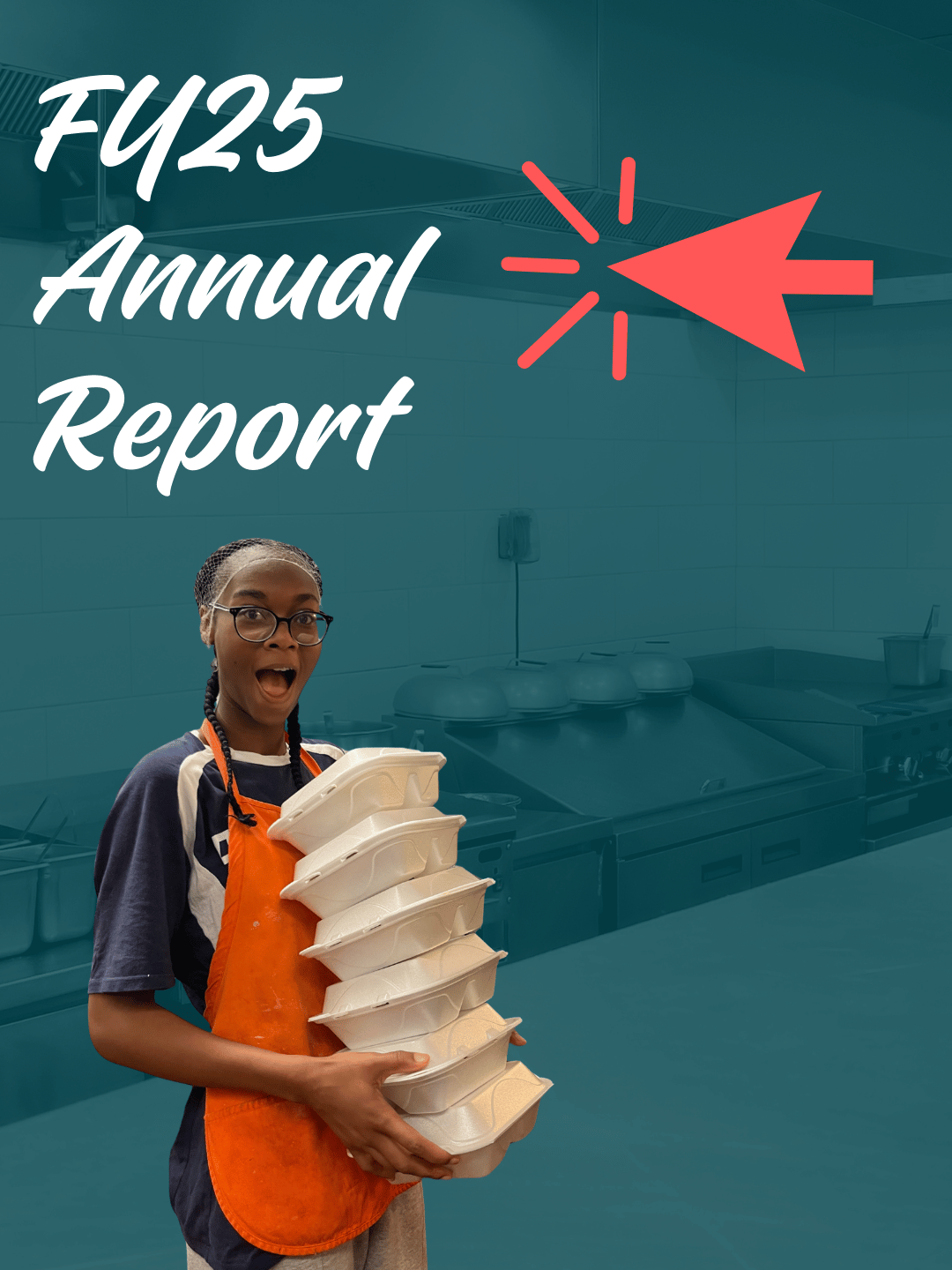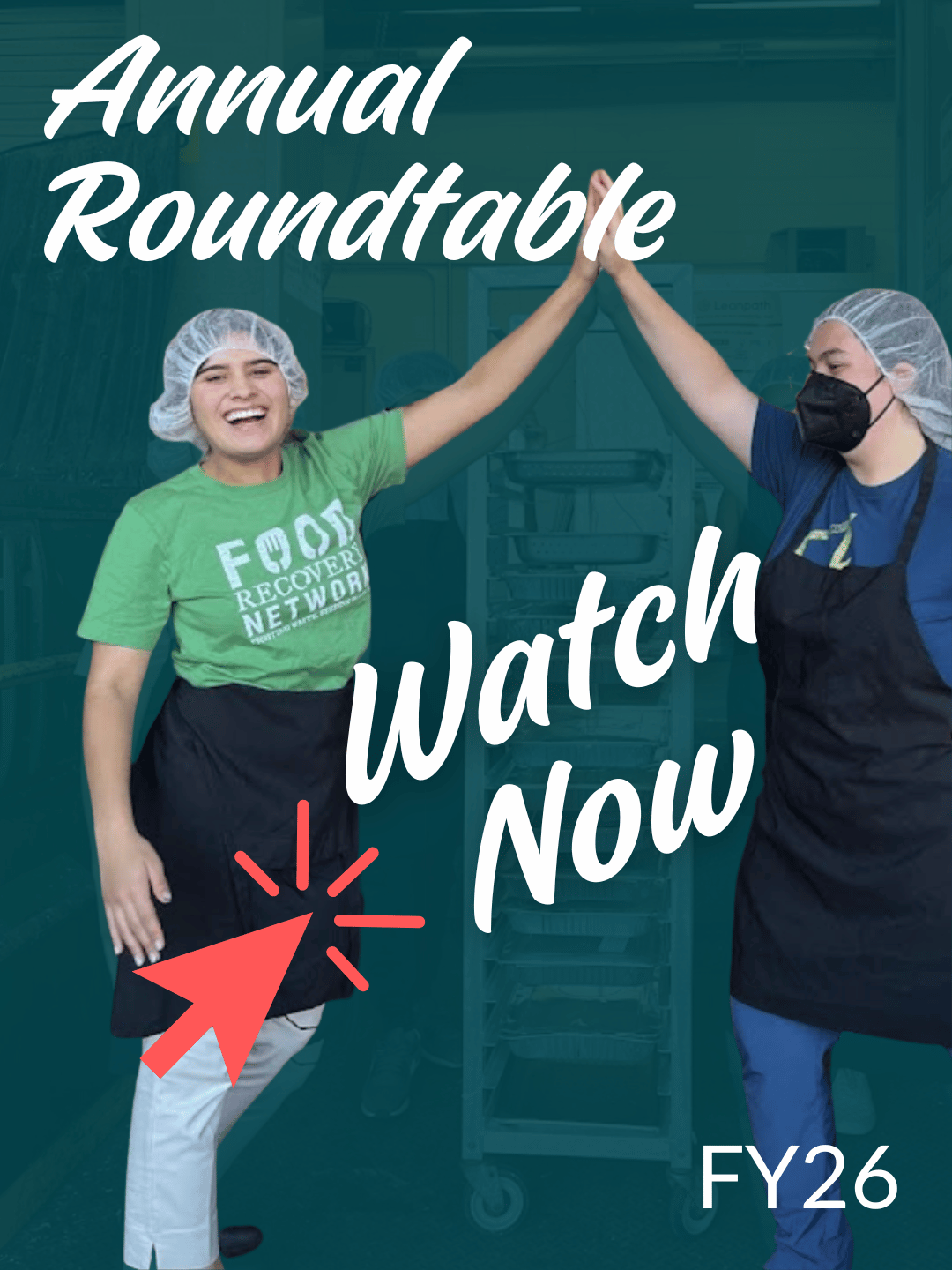
FOOD RECOVERY NETWORK AND RACIAL EQUITY
Food Recovery Network (FRN) recognizes food security, economic security, and climate justice are inextricably tied to racial equity, and achieving any is dependent on addressing the root causes of the inequities. As such, FRN brings an equity lens into all aspects of its organization.
To guide FRN’s external programming, FRN implements a data-driven strategic framework, FRN10X, which examines various aspects of disparities in food access and helps us prioritize geographic areas where we will direct our work.
FRN then mobilizes college students and community partners to design and implement programs that best meet the individualized needs and capacities of their own community to close food waste and food access disparities in the area. By using data and meaningfully working with the community to implement a variety of food access programs, FRN contributes to closing racial disparities in the local food system by adding human and financial resources to the community, increasing food access, and bolstering climate mitigation efforts in areas that are underserved and under-resourced.
Specifically, FRN overlays disaggregated data (race/ethnicity data food insecurity and poverty rates, income and living wage gaps, SNAP participation, amount of surplus food, and higher education locations) to target our impact in specific geographic areas where FRN’s programs can help address food system disparities that disproportionately impact health and economic outcomes for Black, Latinx, and Indigenous communities across the U.S. To learn more about our data-driven mapping methodology, visit our blog post.
FRN also implements strong feedback loops internally and externally to combine data analysis with community input and center the most pressing issues identified by the community. Externally, FRN achieves this through conducting regular student and partner surveys, holding 1-on-1 and larger cohort conversations, and hosting network-wide feedback sessions to ensure their programs best meet the needs of FRN’s students and the individuals experiencing hunger that FRN seeks to serve. Internally, FRN has routine check ins individually and as a whole staff, as well as quarterly performance check ins.
Internally, we also bring an equity lens into our organization. FRN is led by a woman of color, Regina Harmon, who brings both her lived experience as well as her academic background of racial and gender equity studies into FRN in the form of intentional conversation, establishing feedback loops, continual education, programmatic strategy, and organizational culture.
As part of FRN’s commitment to equity, all FRN staff are paid a living wage. Washington D.C. area full-time staff have access to a 100% employer-paid healthcare plan, and all nationwide staff have access to a 403b retirement benefit plan, at least 15 days of Paid Time Off, 8 hours of Volunteer Time Off, and we offer various cultural and historical holidays to recognize a variety of cultural backgrounds. When available, FRN sends staff to DEI training and shares DEI learning opportunities to further their education. Finally, FRN believes and complies with a non-discrimination policy, certifying that each individual has the right to work in a professional atmosphere that promotes equal employment opportunities and is free from discriminatory practices.
These investments in the livelihoods of FRN’s staff, as well as the organization’s inclusive and supportive organizational culture, have led to 100% staff retention over the past two years.
FRN believes a deep commitment to equity, both externally and internally, is critical to achieving our goal to end hunger, forever
Review our strategic framework.
Read our FY25 Annual Report.
Listen to our results.
Food Recovery Network recognizes that food security, economic security, and climate justice are inextricably linked to racial equity, and achieving progress in any of these areas depends on addressing the root causes of these inequities. FRN is committed to racial equity and inclusion through all aspects of our organizational development and programming. We welcome, respect, and encourage the contributions of all individuals, celebrating diversity of race, color, ethnicity, ancestry, national origin, religion, age, sex, sexual orientation, gender identity and expression, marital and familial status, language, mental or physical impairments and disabilities, military status, economic class, immigration status, foster care status, body size, criminal history, and other characteristics that are often used to marginalize individuals and communities.
We acknowledge that the land on which our headquarters office resides is inhabited by the Kinwaw Paskestikweya Clan, also known as the Piscataway Conoy Clan, who were the traditional inhabitants of these lands and waters long before we arrived, and continue to reside here. To learn more about the tribal lands on which our chapters reside, please see https://native-land.ca. We ask you to honor this beautiful land by joining us and committing to sustainability and promoting environmental well-being for everyone to thrive.






